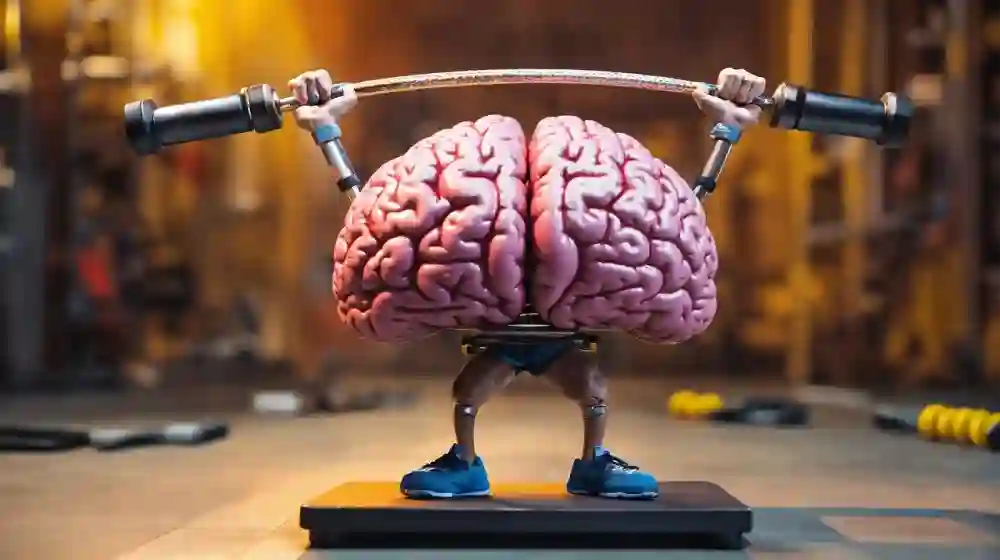Mental Training. Sounds fancy, huh? But honestly, if you’ve ever stepped onto a field or court and suddenly felt like your brain wasn’t in the game, you know exactly what I mean. When your body’s in top form, but your mind’s too busy thinking about what’s for lunch or the fight you had with your roommate, well, that’s where mental training comes in.
It’s not just some abstract idea you read about in self-help books; it’s real, it’s practical, and it’s absolutely essential for anyone who wants to perform at their peak. My best friend Sam once told me, “It’s like having a coach for your brain.” And you know what? She’s right.
So let’s dive into this whole “Mental Training” thing. I promise it’s more than just deep breathing and pretending to meditate.
What Mental Training Really Means
Mental Training? It’s basically teaching your brain to do what your body does on autopilot when it’s in the zone. You know how your muscles are in shape from hours of running, lifting, or swimming? Well, your brain needs that, too. Whether you’re gearing up for a race, a soccer game, or just trying not to make a fool of yourself in the final seconds of a basketball game, you gotta be mentally tough.
I learned the hard way—during my very first tennis match. I had this brilliant serve, all power, all precision. But then I totally lost my concentration thinking about what snack I’d get post-game. Guess what happened? I hit the net. Twice. Anyway, that’s when I realized my brain needed some training. Fast.
Why Is Mental Training So Critical?
Here’s the kicker: You can have the best training, the fastest sprint time, the sharpest aim—but if your brain isn’t on board? Good luck. I remember watching my college friend, Josh, totally fumble in his first big game. The dude had been training for months, but his head wasn’t in it. Not once did he believe he could win. And yup, you guessed it, he didn’t. The mind is just as powerful—if not more so—than the body when it comes to performance.
Now, don’t get me wrong, physical skills are important. But think about this: Mental Training is what makes athletes stand out when it counts. You know, like when the game is on the line, and everything’s screaming for you to panic. But instead of folding, you stay cool—and boom, you nail it.
Some benefits of Mental Training include:
- Laser Focus: Picture this: A loud stadium, the clock ticking down. If you’ve trained your brain to focus, you can block out the noise and execute your game plan like a pro. It’s like tuning out everything—except for what’s in front of you.
- Chill Under Pressure: I’ll admit it, I once melted under pressure during a high-school soccer penalty kick. You’d think I was auditioning for a disaster movie. But with Mental Training, you can learn to manage your nerves, stay calm, and not lose your head when it matters most.
- Confidence Boost: I’m convinced that my first successful jump shot was purely because I told myself, “I can make this.” Seriously. That mental pep talk worked better than any technique or form.
How Mental Training Changes Your Brain
Look, physical workouts are great for muscles, but Mental Training? It does wonders for your brain. Fun fact: I once read in a dusty old sports psychology book—okay, I didn’t read the whole book, but it was on page 42 of ‘Garden Mishaps & Miracles’ (1998), a weirdly helpful reference—that mental exercises like visualization can rewire the brain. So, yeah, it’s not just about thinking positive—it’s about changing the way your brain functions.
To put it simply, training your brain improves cognitive functions. Want to improve your reaction time? Mental Training. Need to think quicker during a game? Mental Training. You can practice things like imagery and focus so well that your brain’s doing the heavy lifting even when you’re not actively thinking about it.
Key Mental Training Techniques That Actually Work
Alright, let’s talk specifics. There are a bunch of tricks that can help. Some of them might sound a little out-there at first, but trust me, they work.
1. Visualization (Or, “I See You, Victory”)
Imagine yourself nailing that game-winning goal, that perfect dive, or that insane free throw. Do it over and over. This is called visualization, and it’s powerful. I remember when I spent a whole weekend visualizing myself finally nailing a backflip on the trampoline. It worked—though, full disclosure, I still hit my head a couple of times before I landed it clean. But hey, baby steps.
2. Self-Talk (The Pep Talk You Need)
Ever get in your own head, telling yourself, “You can’t do this”? Well, stop it. Seriously. Positive self-talk is one of the simplest yet most effective Mental Training techniques. Instead of “I’m going to mess up,” try, “I’ve got this.” Trust me, your brain believes whatever you tell it.
One time, I had a total meltdown during a team relay. I was panicking. But my friend Liza, who’s way more Zen, whispered, “Just breathe and trust your practice.” Honestly, I was so caught off guard by how simple it was that I actually calmed down. And guess what? We won. Mental Training, people.
3. Goal Setting (Smash Your Goals, Literally)
I’m guilty of this—setting a goal and forgetting about it. But when you don’t have a target, it’s hard to know what you’re aiming for. Mental Training teaches you how to break down big goals into smaller, bite-sized chunks. It’s like when I first tried to cook pasta—it was a disaster. But after breaking it down into steps (boil water, add pasta, then sauce—duh), I finally nailed it. Same idea with training: Set small goals that eventually lead to bigger victories.
4. Mindfulness (Because Your Mind’s a Mess)
Mindfulness isn’t just for yoga studios—it’s for anyone who wants to get their head in the game. It’s about being present. Not thinking about what you had for lunch or stressing over that email you forgot to send. When you’re focused on the moment, you’re able to perform at your highest potential.
I remember when I was trying to learn long-distance running. The first few miles? Pure misery. But when I focused on each step—just one after another—I stopped worrying about the finish line and actually enjoyed it. Mindfulness. It’s not magic. It’s Mental Training.
Mental Training Is Like a Secret Weapon
Look, we’ve all seen the athlete who seems to have everything going for them, only to fall apart when it matters most. But when you have Mental Training in your corner, you’re less likely to choke in the big moments.
Fast forward to me as a 16-year-old, at my first volleyball tournament. Nervous? You bet. But I had worked with a coach who taught me Mental Training. And though I almost fainted on the court (too much adrenaline, too little water), I pulled it together. The moral of the story? Your mind can be your biggest asset—if you train it.
How to Get Started with Mental Training
Alright, here’s what you can do to start practicing Mental Training yourself. First thing? Make it a habit. This isn’t a quick fix; you gotta stick with it. Here’s a mini-guide for ya:
- Commit to it: Like lifting weights, you’ve got to stick with it. Commit a few minutes daily to training your brain.
- Practice mindfulness daily: Start small. Focus on your breathing while waiting in line for coffee.
- Set realistic goals: Don’t try to become an Olympic athlete overnight. Start small, like beating your personal best on that 5K.
- Seek professional help: If you want to go pro with this stuff, consider working with a mental coach. They can seriously help sharpen your skills.
Conclusion: Mental Training Is Your Secret Sauce
In the end, here’s the deal: Mental Training isn’t just some fluff. It’s what makes champions. You can train your body all day, but if your mind is all over the place? You’re done. Don’t be like my poor cousin Greg, who couldn’t hit a target even if it was right in front of him (bless his heart). Train your brain, train your body, and start seeing results.
Anyway, if you’ve ever watched an athlete nail a game-winning shot, a clutch goal, or a perfect landing, just remember: Behind that physical prowess, there’s a mind that’s been working overtime to make it happen.










Important Posts
The Most Iconic Sports Moments of the 21st Century
Rupee7 Delivers Fast Payouts and Exciting Betting Options
Ultimate Sports Updates & In-Depth Game Analysis for Fans